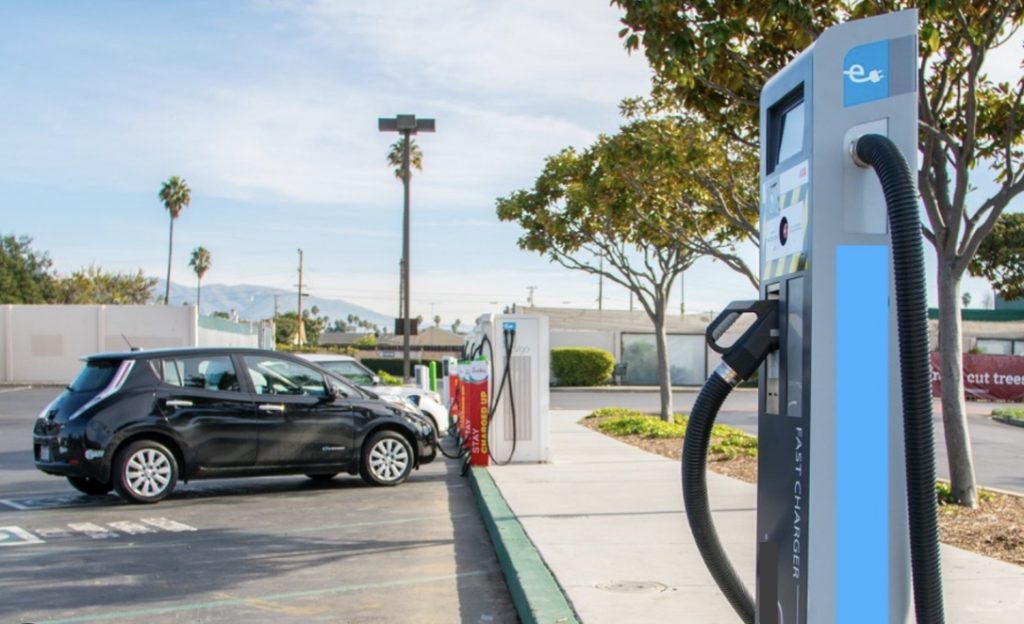
Kentucky is the first state to require that electric vehicle charging companies include Tesla’s Supercharger fast-chargers — if they want to be part of a state program to electrify highways that’s getting federal funding. That went into effect on Friday, while Texas and Washington are considering it, according to Reuters. Along with the federal requirement for having the Combined Charging System (CCS) in place, Kentucky is following the federal lead of also including Tesla’s North American Charging Standard (NACS). These would, of course, apply to other chargers below the fast charging level in these networks.
Tesla owners are worried that supercharging will be getting difficult now that more automakers have come over to the North American Charging Station (NACS). They’d appreciated not have to wait for long periods or have their charger break down. Ford, General Motors, Rivian, and Volvo have joined up — bringing together the Combined Charging System (CCS) fast charging network with Tesla’s Supercharger network. Tesla owners are enthusiastic about the effectiveness and speed of NACS, but is the network large enough at this point? Sam Abuelsamid, an analyst at Guidehouse Insights, told Business Insider that by 2027, that we probably won’t see anymore new EVs built for the North American market with CCS ports; so the NACS will be getting crowded.
With more than 17,000 locations in North America alone, Tesla’s Supercharger network is the most extensive fast-charge public charging network in the world. It also benefits greatly from users being generally satisfied with it as reliable and easy to use — unlike other charging networks that have grown in complaints over the past year.
Volkswagen had been the only automaker so far to say that it’s committed to the CCS standard. Some of that probably comes from CCS provider Electrify America, which came from $2 billion VW agreed to put into the “Dieselgate” settlement. That network has 840 stations and plans to double that number by 2026. But all of that’s changing now, according to The Verge. On Wednesday, VW said in a statement that it’s in talks with Tesla about installing ports in its EVs compatible with Tesla’s plugs. That came right after Electrify America said it would soon be adding NACS charging plugs. There’s been talk about Toyota possibly coming over, too, but the Japanese automaker is staying silent about it.
Volvo will be equipping its US electric cars with the NACS charging ports starting from 2025. The company plans to manufacture only electric cars by 2030. Polestar, it’s luxury EV subsidiary, will bring in Tesla’s NACS starting in 2024.
Companies considering going over to NACS include Hyundai, Kia, and Stellantis (Jeep, Chrysler, Alfa Romeo, Ram, Maserati, Dodge, Renault, Fiat, and more). Stellantis doesn’t yet sell any battery electric vehicles (BEVs). It does sell three plug-in hybrid electric vehicles — the Dodge Hornet, Alfa Romeo, and Chrysler Pacifica. For BEVs, the global automaker has two all-electric vehicles in the works — the Ram ProMaster commercial van and Ram pickup.
SAE International would like to see NACS meet the performance and interoperability criteria that is standard in the industry, which has led to a working dialogue moving forward. The US Joint Office of Energy and Transportation was instrumental in fostering the SAE-Tesla partnership and expediting plans to standardize NACS, SAE said.
Charging companies such as ChargePoint and Blink Charging, which have exclusively used CCS plugs, have already said they too will add Tesla’s NACS plugs to their chargers
And in other news……….
Sustainability won’t be fading away: “So far in 2023, investors have put just over $17 billion into global seed- through growth-stage financings for sustainability-focused companies, per an analysis of Crunchbase data. That’s on track to come in pretty close to 2021 totals but likely below the record-setting investment tallies of 2022,” according to Crunchbase. That’s quite significant as climate change forecasts keep getting worse, so the demand for solutions-based technology is there. And investors do give it more value than nearly all other sectors; sustainability has dipped in market value, but not by as much as nearly everything else that the venture capital markets follow.
Aston Martin partners with Lucid Motors: Aston Martin, an iconic British luxury and performance car brand, plans to launch its first plug-in model, the mid-engine hybrid Valhalla, in early 2024, followed by a battery-electric vehicle the following year. All of the company’s models will be hybrid or BEV by 2026 and all-electric by 2030. Lucid will supply Aston Martin with its electric motors and batteries that have been used to power the California-based company’s Lucid Air sedan. Aston Martin will then take that technology and adapt it to it to its own lineup of electric models.
Electrify America and Lyft find discounted charging: Lyft drivers will get discounted EV charging through an alliance between VW’s Electrify America and Lyft. This will take place at Electrify American charging stations coast-to-coast.
“This new agreement expands our existing relationship with Lyft and helps Electrify America advance EV adoption by advancing electrification of ride-share miles,” said Robert Barrosa, president and CEO of Electrify America. “Not only will drivers on Lyft enjoy the advantages of Electrify America’s ultra-fast and convenient charging network, but by using the new benefits, they can also quickly get back on the road to transport passengers to their destinations in a more sustainable way.”



